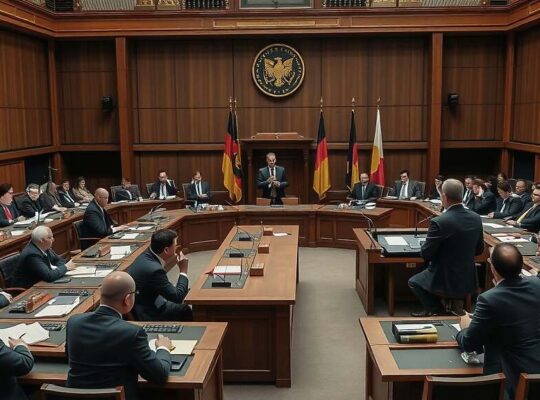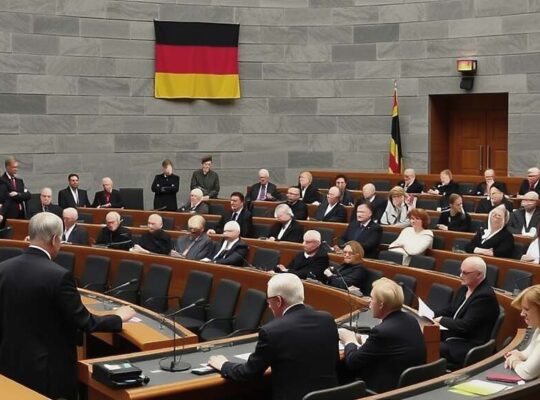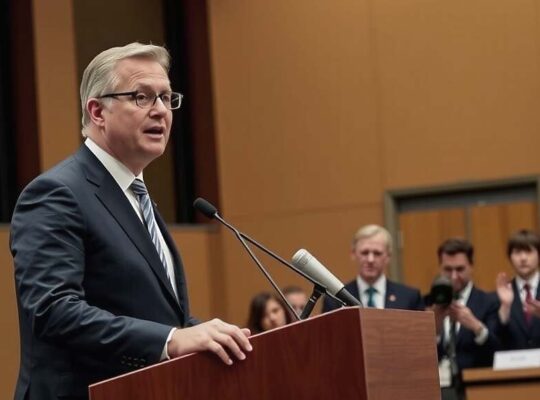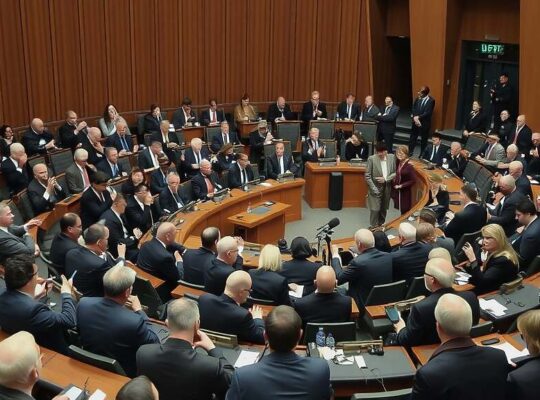The German opposition within the ruling coalition is intensifying the debate surrounding the government’s proposed pension reform, revealing a growing rift over the direction and composition of future deliberations. While the government aims for a primarily technocratic approach, key figures within the Christian Democratic Union (CDU) are now pushing for greater political involvement in the crucial pension commission tasked with formulating long-term solutions.
Andreas Jung, CDU’s Deputy Federal Chairman and Manuel Hagel, the party’s leader in Baden-Württemberg, argue that the government’s initial draft should remain largely intact, but that a newly formed pension commission must be significantly “politically populated” incorporating younger CDU parliamentarians and granting them a direct role in shaping future reforms beyond 2031. This contrasts with the government’s initial intention to staff the commission solely with independent experts, shielding it from direct political influence.
Hagel emphasized the need for a “clearly defined political mandate” for the commission, a mandate that would be actively implemented by the coalition. He framed the situation as an opportunity for a “generational contract” advocating for a balance between appreciating the contributions of older generations while ensuring a fair and sustainable pension system for younger workers.
The CDU’s push signifies a growing concern that the government’s proposed changes – and the underlying philosophies driving them – are not sufficiently aligned with the party’s base, particularly amongst younger members who feel underserved by the current system. It also reflects a desire to reclaim ownership of the reform agenda, after initially appearing to cede control to the Social Democrats.
However, the internal CDU maneuvering has drawn sharp criticism. Philipp Türmer, Chairman of the Jusos (the SPD’s youth wing), labelled the opposition to the government’s package as “nerve-wracking” and accused it of undermining the viability of the statutory pension system. Türmer argued that the debate is not a generational conflict, but rather a disparity between the wealthy and the poor, accusing those advocating for cuts as effectively benefiting the affluent. He championed expanding contribution bases and redistributing resources within the system as a means to address future challenges and bolster the safety net for vulnerable individuals.
The escalating tensions within the coalition highlight the deep-seated ideological differences surrounding social welfare and generational fairness, potentially setting the stage for protracted negotiations and a significantly altered course for Germany’s pension reform strategy.












